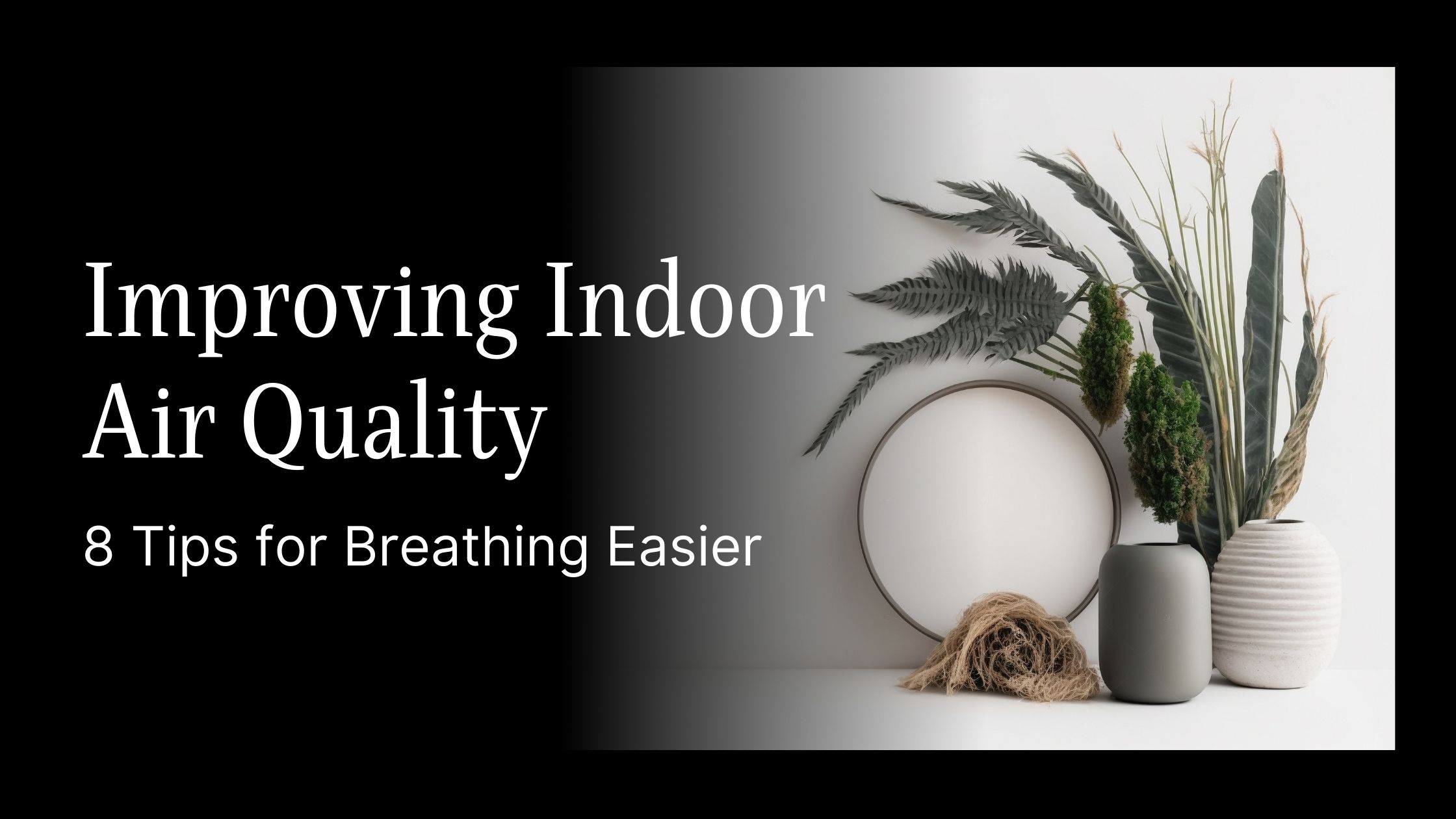Improving Indoor Air Quality: 8 Tips for Breathing Easier
In today’s world, where we spend a significant amount of time indoors, the quality of the air we breathe becomes paramount. From allergens to pollutants, our indoor spaces can harbor various elements that impact our health and well-being. Fortunately, there are several effective strategies and simple tips that can significantly improve your indoor air quality, creating a healthier environment for you and your loved ones.
Understanding Indoor Air Quality
Indoor air quality refers to the condition of the air inside buildings and structures concerning the health and comfort of the occupants. Poor air quality can lead to respiratory issues, allergies, and other health concerns. Common indoor pollutants include:
- Dust and Allergens: Pet dander, pollen, dust mites, and mold spores.
- Volatile Organic Compounds (VOCs): Chemicals released from household products like cleaners, paints, and air fresheners.
- Combustion Byproducts: From gas stoves, fireplaces, or tobacco smoke.
- Poor Ventilation: Insufficient fresh air circulation.
Tips for Improving Indoor Air Quality
1. Regular HVAC Maintenance
Ensuring your heating, ventilation, and air conditioning (HVAC) systems are properly maintained is crucial. Schedule regular professional inspections, change filters regularly, and keep ducts clean to prevent the circulation of pollutants.
2. Invest in Air Purifiers
High-quality air purifiers with HEPA filters can efficiently capture and remove airborne particles, reducing allergens and pollutants circulating in your home.
3. Increase Ventilation
Proper ventilation is essential. Open windows when possible to let in fresh air. Utilize exhaust fans in kitchens and bathrooms to remove pollutants generated from cooking and showering.
4. Control Humidity Levels
Maintain optimal humidity levels (ideally between 30-50%) to prevent mold growth. Dehumidifiers can help in damp areas, while humidifiers add moisture to dry indoor air during winter.
5. Use Natural Cleaning Products
Opt for natural, non-toxic cleaning products to reduce the introduction of VOCs into your indoor environment. Alternatively, consider making your cleaning solutions using simple ingredients like vinegar and baking soda.
6. Keep Floors Clean
Regularly vacuum and mop floors to minimize dust and allergens. Consider using a vacuum cleaner equipped with HEPA filters.
7. Limit Indoor Smoking
Smoking indoors significantly degrades air quality. Encourage a smoke-free environment to protect the health of your household.
8. Introduce Houseplants
Certain indoor plants, such as spider plants, peace lilies, and snake plants, can help filter out indoor air pollutants naturally.
Enhancing indoor air quality isn’t a one-time task but rather an ongoing commitment to creating a healthier living space. By adopting these tips and implementing them into your daily routine, you can significantly improve the quality of the air you and your family breathe. Prioritizing clean indoor air is an investment in your health and well-being, creating a more comfortable and inviting home environment for everyone.
Contact Us
Irwin HVAC Services cares about your comfort and the quality of air you breathe, and we’re here to help keep you healthy and cozy in your home throughout every season. Ensure your home is comfortable throughout the year by contacting us for all your HVAC needs!
Irwin HVAC Services is a trusted American Standard Heating & Air Conditioning Dealer in Moody, AL. Follow us on Facebook.



